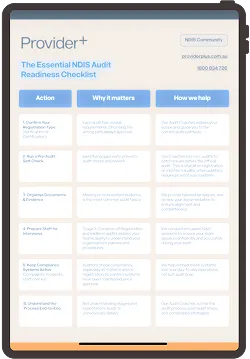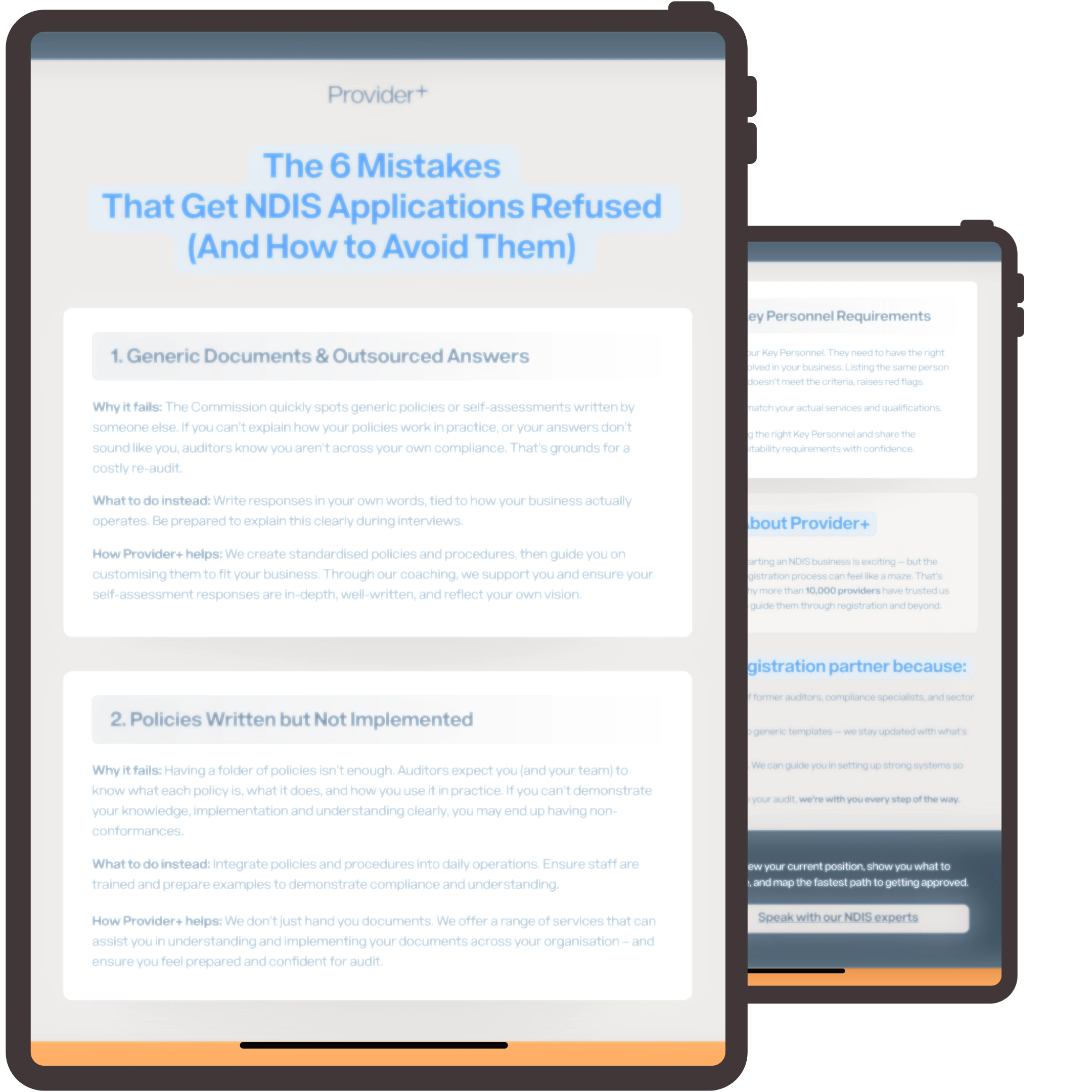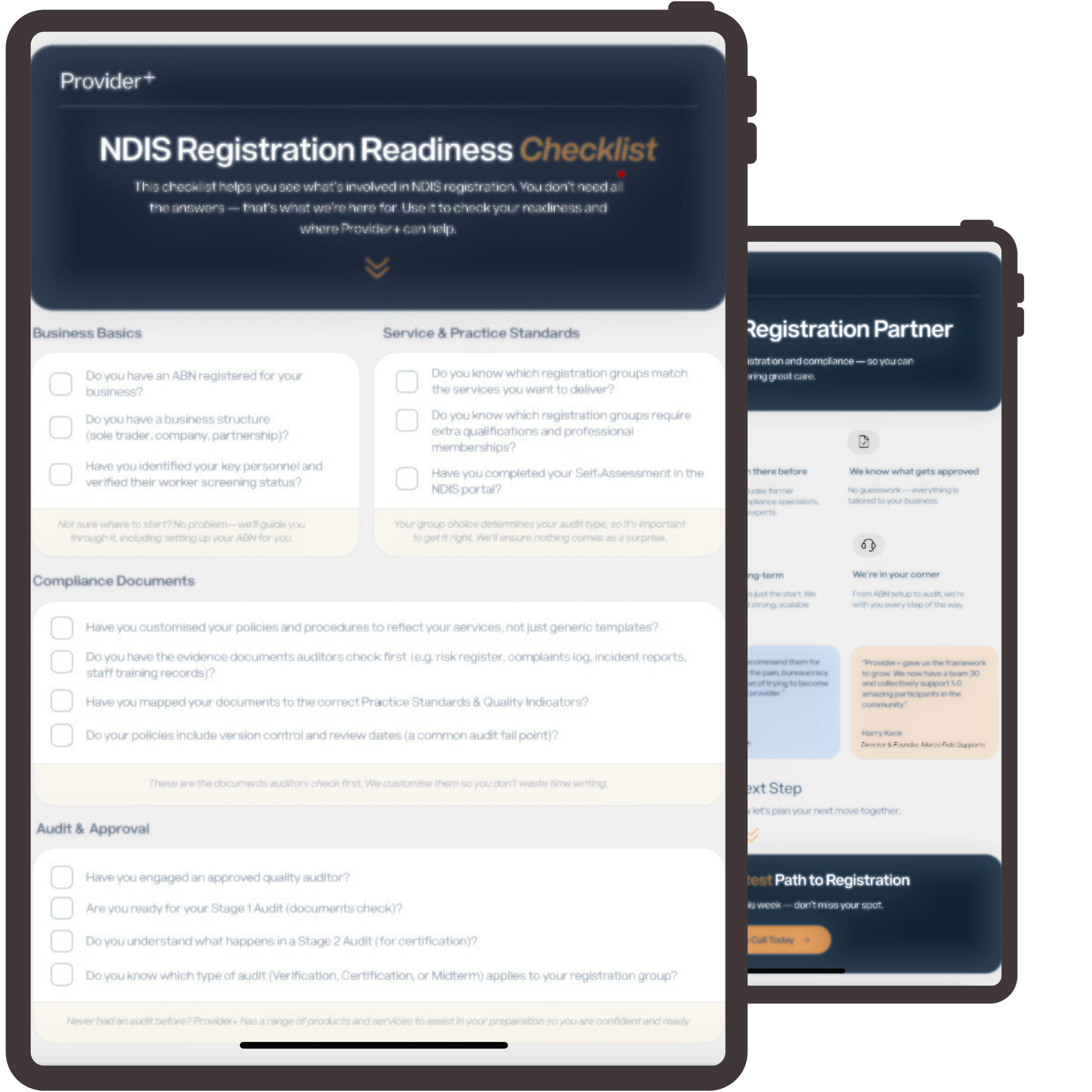NDIS Community Nursing vs High Intensity Daily Personal Activities
Navigating the distinctions between different National Disability Insurance Scheme (NDIS) registration groups can be complex, particularly between Community Nursing (0114) and High Intensity Daily Personal Activities, commonly referred to as Module 1 (0104). Understanding the nuances of each registration group is essential to ensure participants receive the right level of care from appropriately qualified staff. This distinction supports accurate care planning, aligns with NDIS funding categories, and ensures that clinical and personal care needs are met safely and effectively, based on each participant’s individual circumstances.
Understanding 0104: High Intensity Daily Personal Activities
The 0104 registration group, also known as Module 1, focuses specifically on supports designed for participants who require high-intensity daily personal activities due to complex health needs.
What are High Intensity Daily Personal Activities?
These supports are personal care tasks that involve higher levels of skill, experience, and training. Common supports under 0104 include:
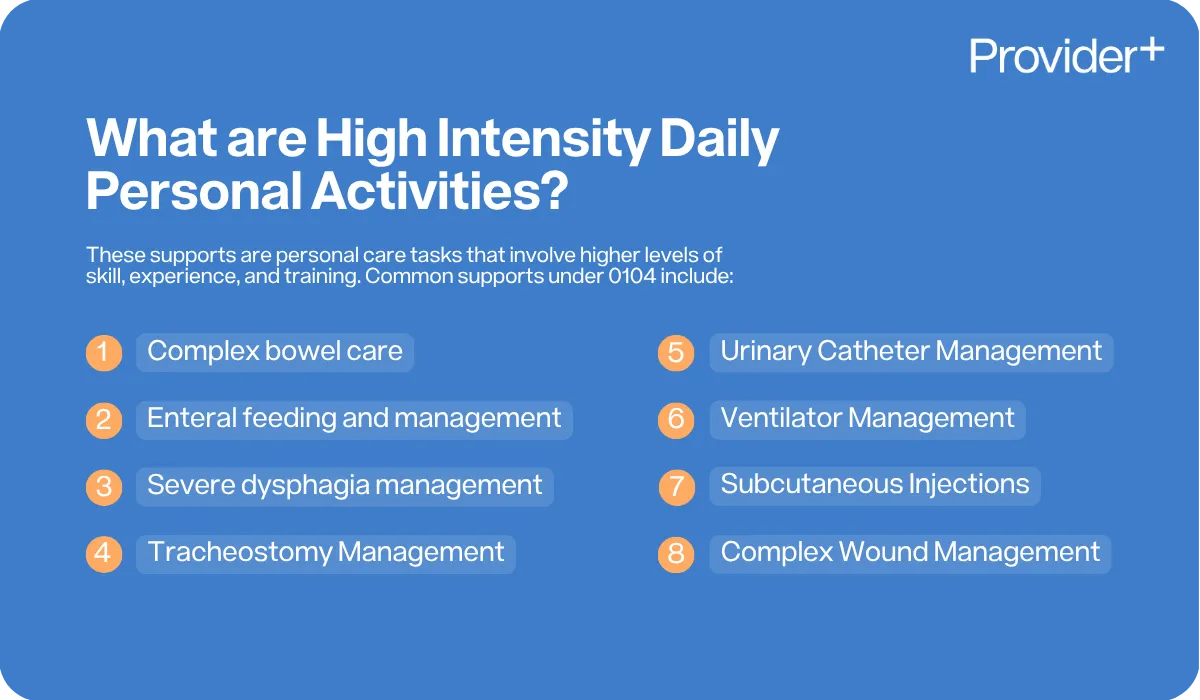
- Complex Bowel Care: Supporting participants requiring specialised bowel management techniques.
- Enteral Feeding and Management: Assistance with feeding tubes such as nasogastric (NG), jejunostomy, or duodenal feeding.
- Severe Dysphagia Management: Support with significant swallowing difficulties.
- Tracheostomy Management: Assistance managing breathing tubes placed in the trachea.
- Urinary Catheter Management: Support involving indwelling, intermittent, or suprapubic catheters.
- Ventilator Management: Assistance with managing ventilators and respiratory equipment.
- Subcutaneous Injections: Administering injections under the skin.
- Complex Wound Management: Care for wounds requiring specialised dressing or techniques.
Who can deliver Module 1 Supports?
Support workers can deliver Module 1 supports, provided they meet stringent competence criteria. These criteria include:
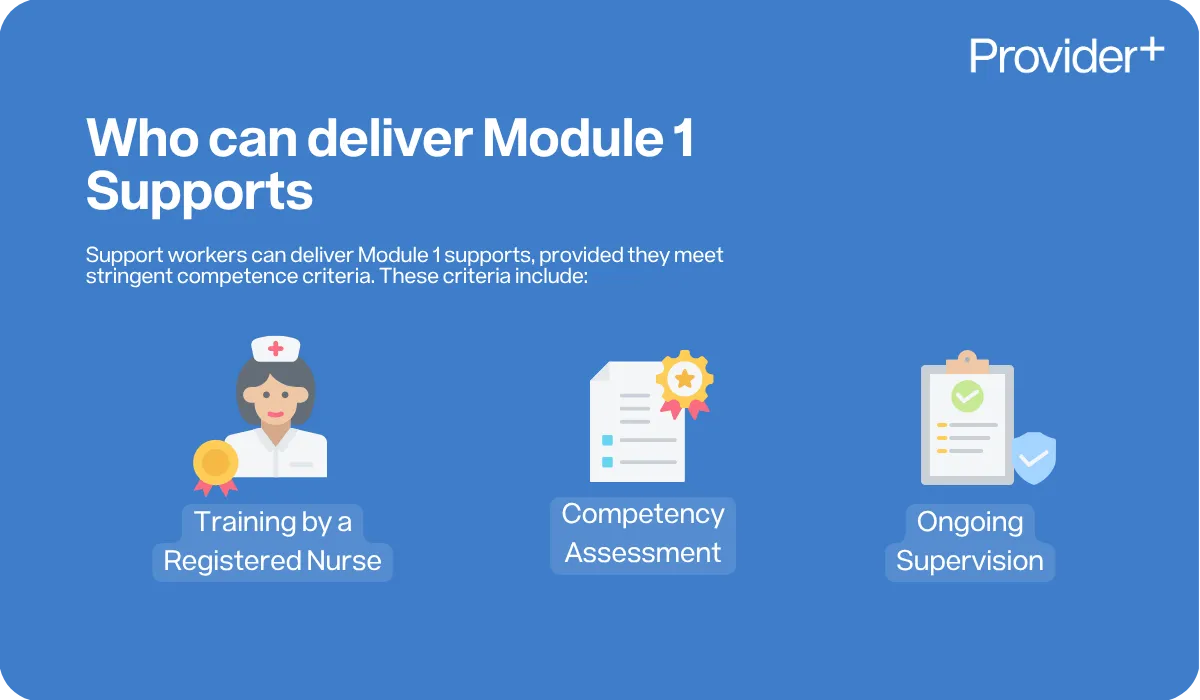
- Training by a Registered Nurse: Workers must undergo training specific to the individual health needs of the participant.
- Competency Assessment: A Registered Nurse assesses and certifies the worker’s competence to safely carry out the delegated tasks.
- Ongoing Supervision: Regular supervision by a Registered Nurse ensures continued compliance with best practice guidelines and standards.
Understanding 0114: Community Nursing
0114 Community Nursing involves clinical nursing services delivered by qualified health professionals, specifically nurses. Community Nursing fits within the broader context of disability support under the NDIS by providing high-intensity support tailored to the unique needs of individuals with disabilities. This group is designed to address disability-related health needs not typically managed within the mainstream healthcare system.
What services are included under Community Nursing?
Services within 0114 encompass a wide range of nursing-specific supports requiring clinical expertise, such as:
- Catheter Care: Replacement, management, and education around urinary catheterisation.
- Tracheostomy Care: Cleaning, monitoring, and general maintenance of tracheostomy equipment.
- Medication Management: Administration, monitoring, and management of medications.
- PEG Feeding: Safe management and administration of percutaneous endoscopic gastrostomy feeding.
- Complex Wound Care: Advanced wound management strategies by a clinical expert.
- Ventilator and Respiratory Support: Clinical management of ventilators and respiratory care.
- Health Assessments and Treatment Planning: Comprehensive evaluations and the development of personalised care plans.
- Training and Delegation to Support Workers: Educating support staff on safe delivery of tasks they can manage.
- Palliative Care: Specialised care aimed at comfort and quality of life for terminally ill participants.
- Diabetes Management: Clinical oversight and education related to managing diabetes.
- Stoma Care: Support for individuals with stomas, including education and regular care.
- Overnight Nursing: Continuous night-time care requiring clinical nursing expertise.
- Vital Sign Monitoring: Regular clinical checks such as blood pressure, pulse, temperature, and blood sugar levels.
- Dementia and Continence Support: Clinical strategies for managing dementia-related health issues and continence care.
- Pressure Care: Essential health support task requiring oversight by a registered nurse to ensure comprehensive care for individuals with complex health needs, relevant in both intermediate and high-level care scenarios.
Differences Between 0104 and 0114
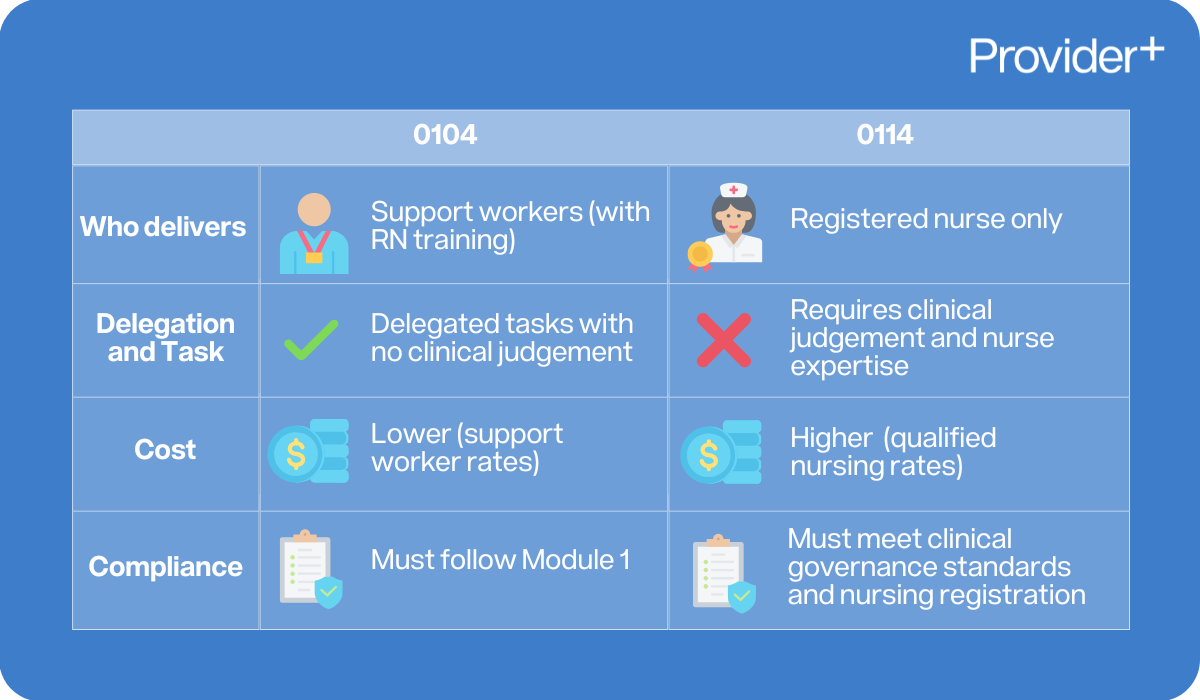
Understanding the difference between these two registration groups is crucial for correct support implementation:
Adhering to the NDIS Practice Standards and using quality indicators is essential to ensure compliance and maintain high-quality support.
Delegation and Task Responsibility
- 0104: Tasks can be performed by support workers under direct supervision and training from a Registered Nurse. These tasks are delegated because they do not inherently require clinical judgment or high-level nursing expertise, but rather consistent training and monitoring.
- 0114: Tasks require clinical judgment, ongoing professional assessment, and specialised nursing knowledge. These supports cannot be delegated to non-clinically trained support workers.
Cost Implications
- 0104: Typically more cost-effective when appropriate delegation and training occur. Support workers’ hourly rates are generally lower than nurses, which can enable participants to maximise their funding.
- 0114: Generally higher cost due to the necessity of qualified clinical personnel delivering care, reflecting the specialised skills required.
Regulatory Compliance
- 0104: Providers must adhere to Module 1 - High Intensity Daily Personal Activities and the High-Intensity Support Skills Descriptors and demonstrate training and competence.
- 0114: Providers must meet clinical governance standards, maintain professional nursing registration, and regularly update training in line with medical and clinical best practices.
Choosing Between 0104 and 0114
When deciding between these registration groups, providers and participants should consider:
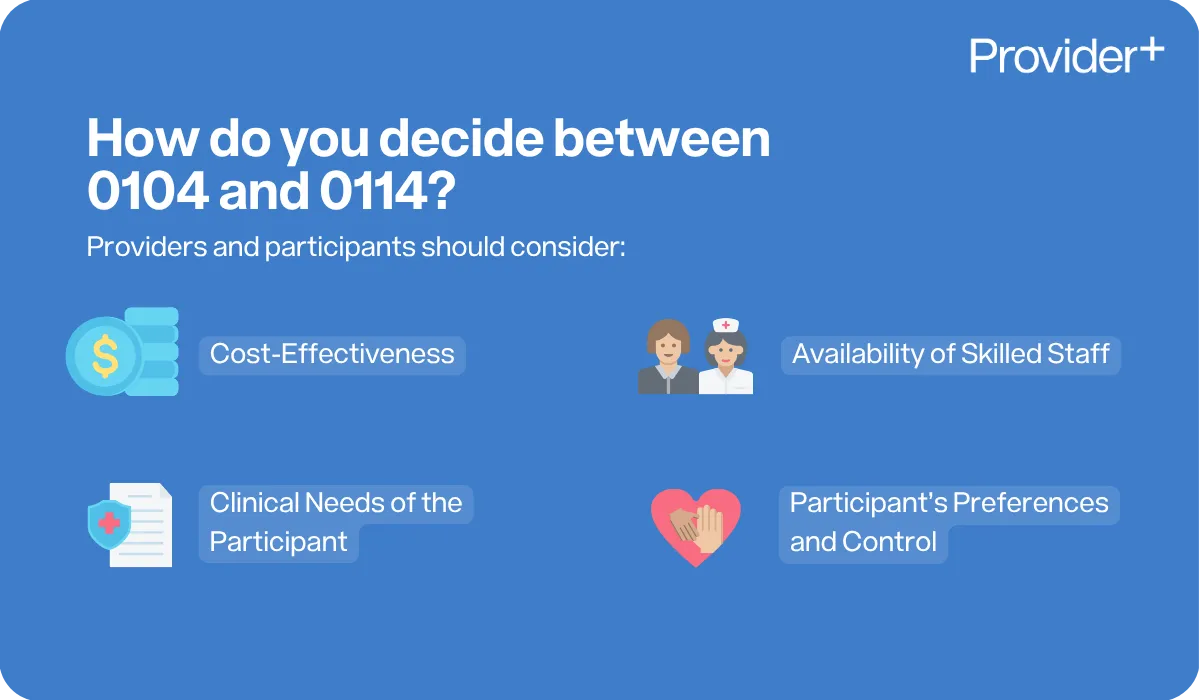
- Clinical Needs of the Participant: Assess the participant’s medical requirements and complexity to determine if delegation is safe and appropriate. It is crucial to develop a support plan that is relevant to the individual's needs, ensuring they receive the appropriate level of care and oversight.
- Participant’s Preferences and Control: Consider the participant’s choices, comfort, and preferences about who provides their care.
- Cost-Effectiveness: Evaluate the long-term sustainability of supports within the participant’s allocated funding.
- Availability of Skilled Staff: Determine whether adequately trained support workers or clinically qualified nurses are available consistently.
Example Scenario
Consider Hannah, who has Down syndrome and diabetes. She requires daily blood sugar monitoring. Initially, a Registered Nurse performs the monitoring. However, after assessment, the nurse determines that Hannah’s support worker can safely perform this task following adequate training. This delegation under Module 1 (0104) reduces costs and ensures continuity of care, empowering Hannah with more personalised support.
Compliance and Quality Assurance
Providers must maintain detailed records proving competence, training, supervision, and compliance with NDIS standards:

- Maintain up-to-date training logs and competencies.
- Document assessments and health plans clearly.
- Ensure regular clinical audits and reviews.
Adhering to NDIS quality standards and seeking expert advice are crucial in ensuring that training and competency requirements are met effectively.
Conclusion
Clearly distinguishing between Community Nursing (0114) and High Intensity Daily Personal Activities (0104) enables providers to deliver appropriate, safe, and cost-effective support tailored to participants' complex health needs. This distinction ensures that care is delivered by the right staff with the necessary skills, aligning with NDIS compliance requirements and safeguarding participants from potential risks. By understanding and applying the correct support category, providers can enhance the quality of care, promote participant choice and control, and deliver truly person-centred services that improve outcomes and uphold the integrity of NDIS supports.
